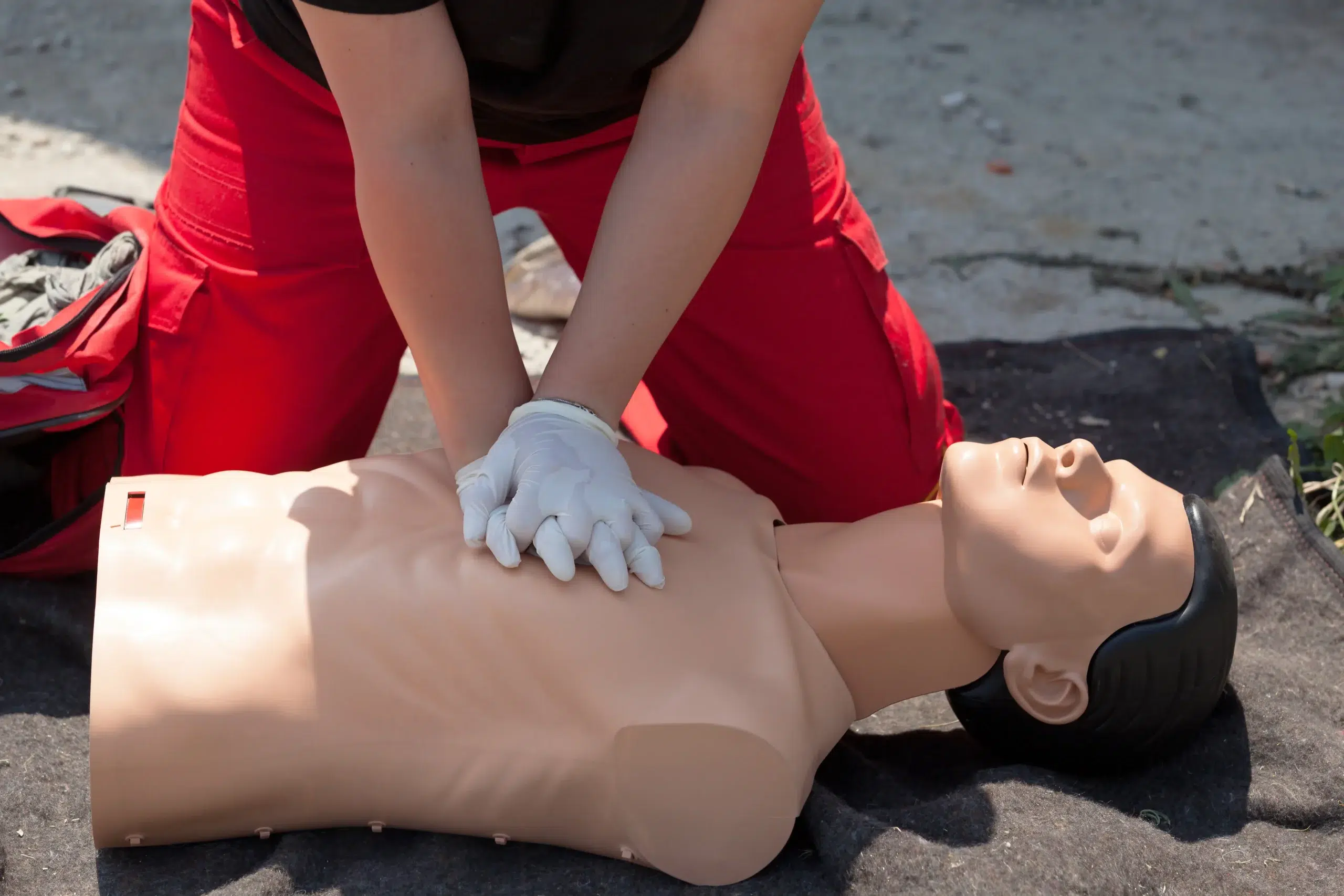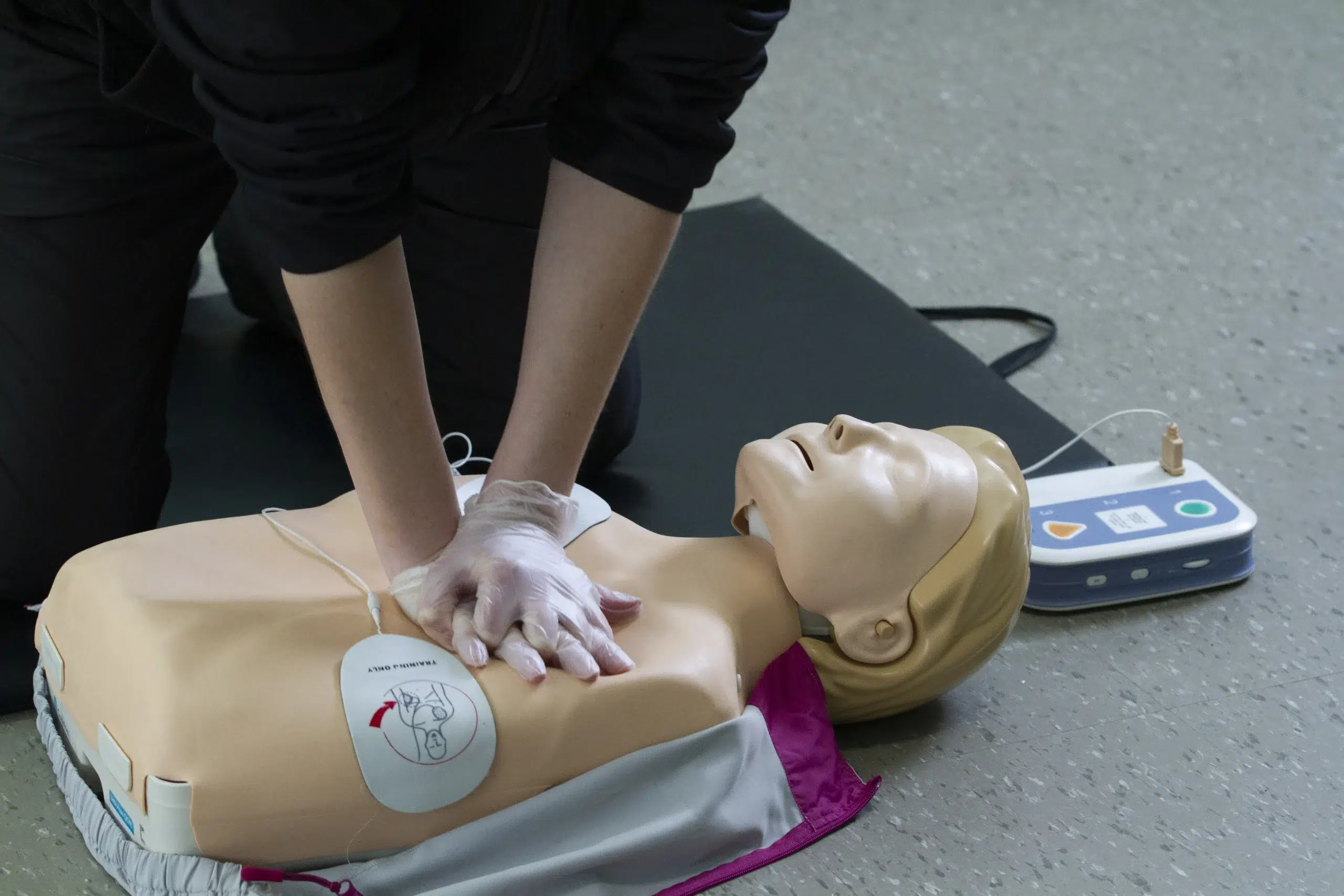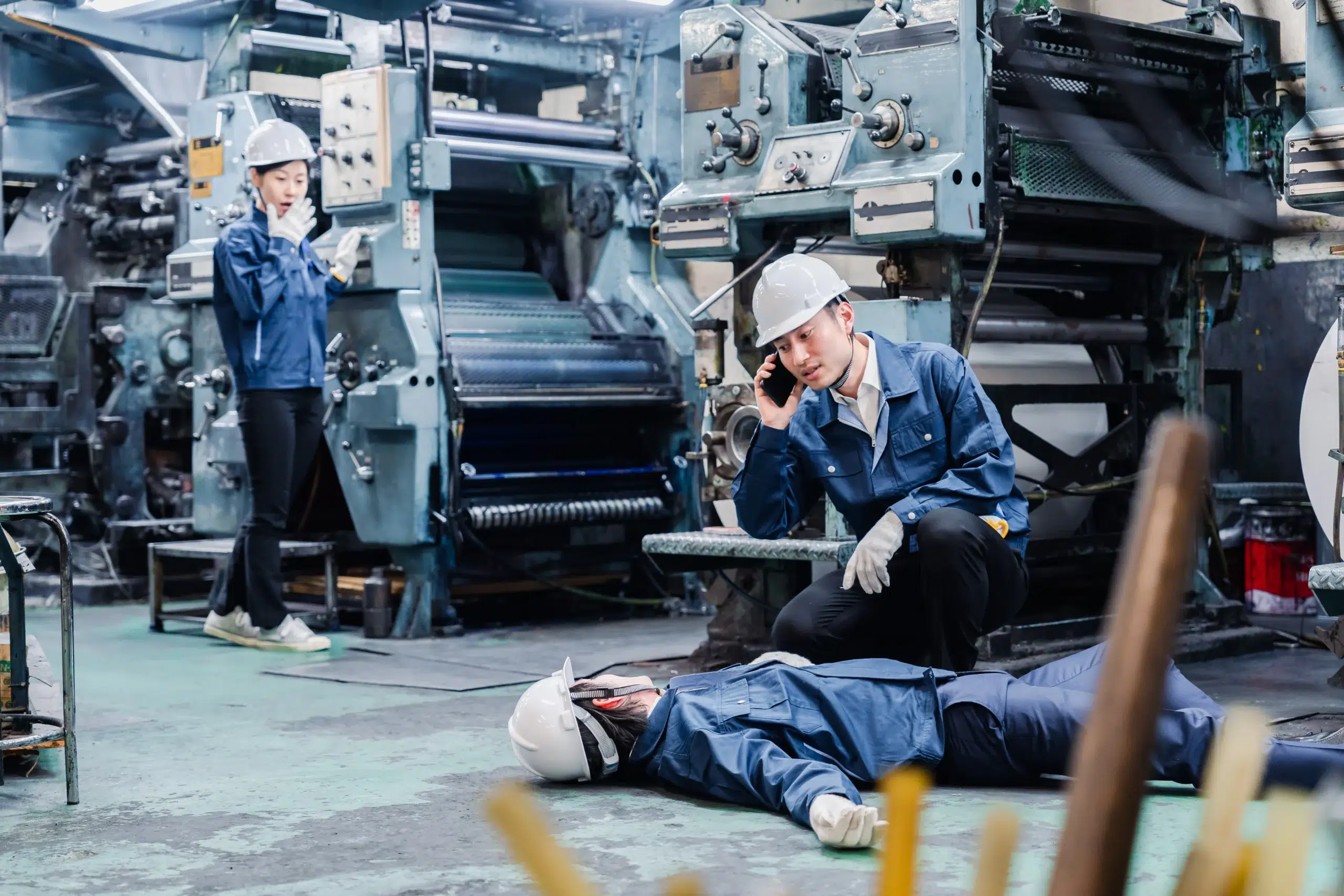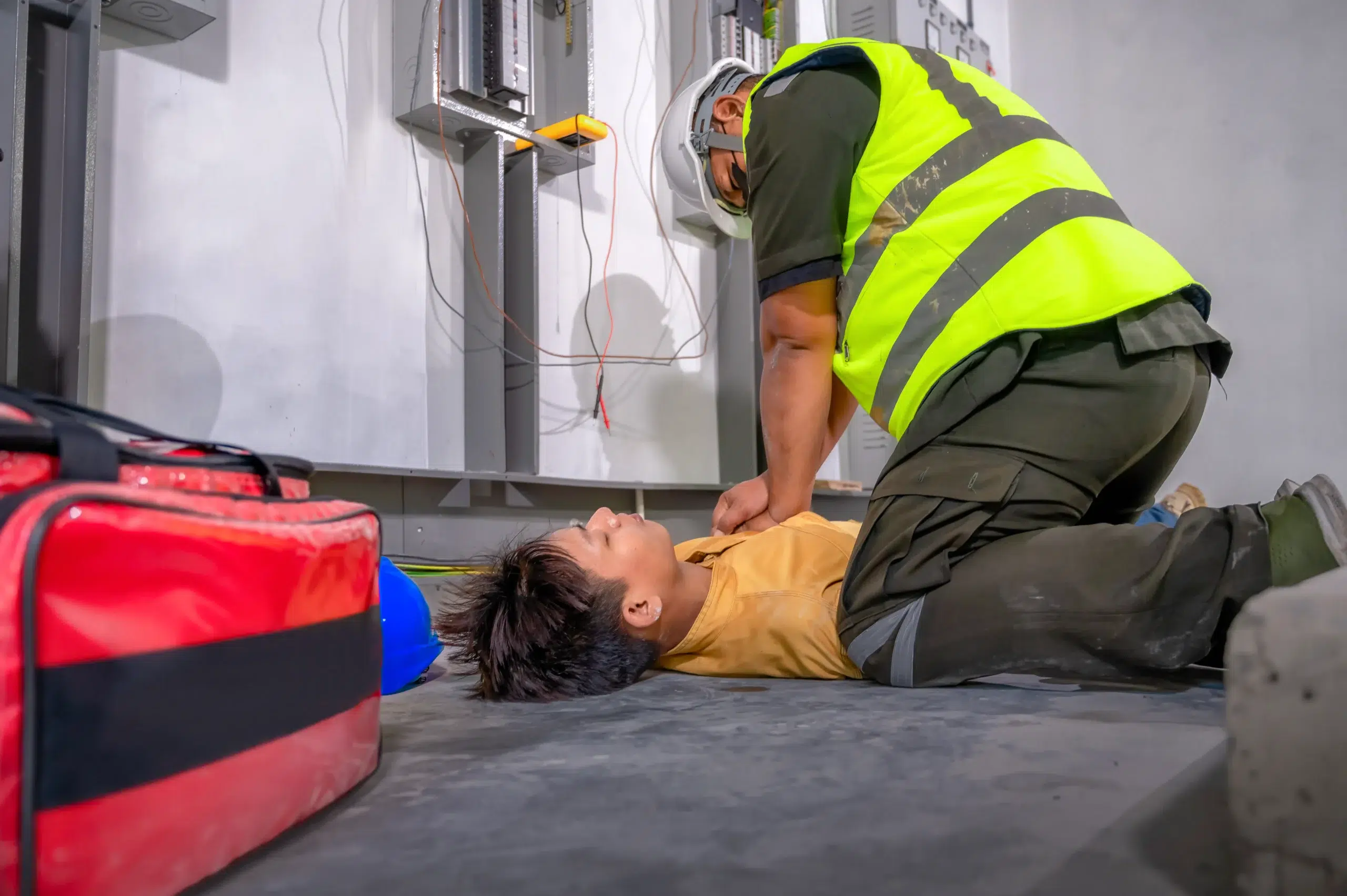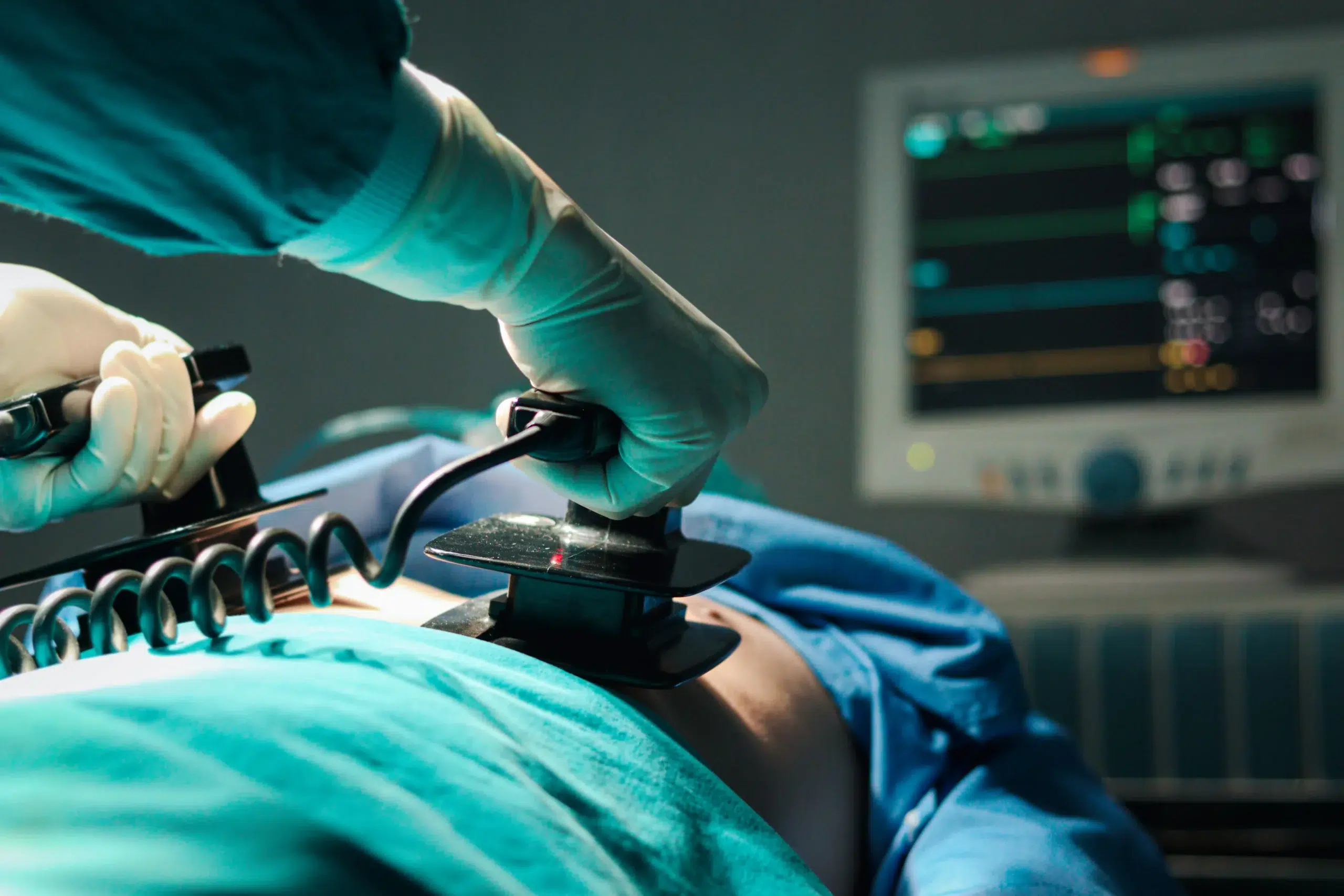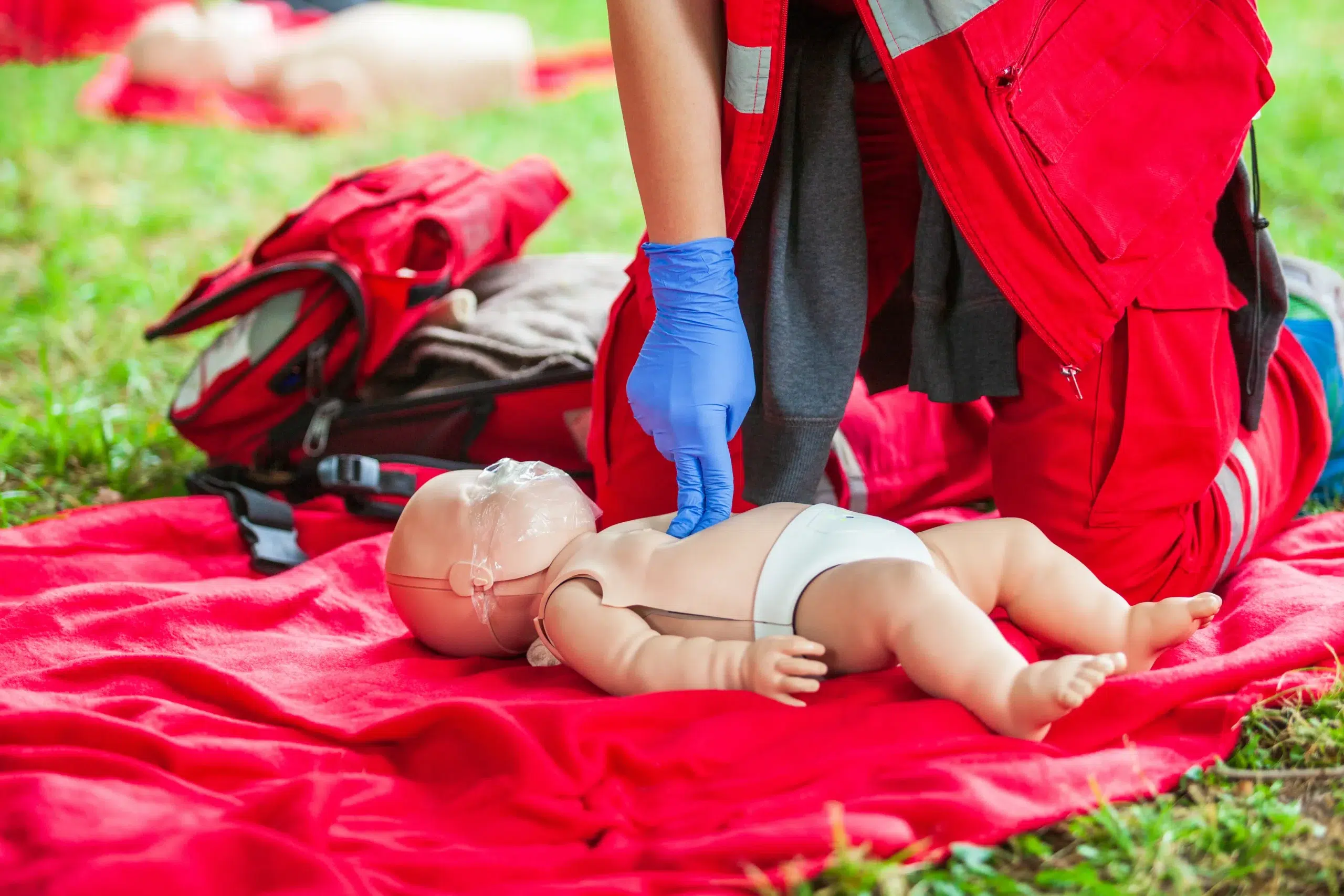Emergencies can happen anytime, anywhere. Would you know what to do if someone near you suddenly collapsed? Basic Life Support (BLS) training empowers you with the skills to respond effectively in such critical situations. This comprehensive guide covers everything you need to know about BLS certification in Dublin, from where to find accredited courses to what to expect during training. Whether you’re a healthcare professional or simply someone who wants to be prepared, understanding BLS and its importance can make a real difference in a life-or-death situation. We’ll explore the ins and outs of BLS, debunk common myths, and provide you with the resources you need to get certified and stay up-to-date with the latest guidelines. Let’s equip you with the confidence and skills to act quickly and effectively when it matters most.
Key Takeaways
- BLS skills empower anyone to respond to emergencies. From healthcare professionals to everyday people, this training provides the confidence to act quickly and effectively when it matters most. Find a course that suits your lifestyle and learn how to make a difference.
- Finding the right BLS course involves a few key steps. Look for reputable providers with experienced instructors and accredited certifications. Think about your learning preferences and choose a course format—online, blended, or in-person—that works best for you.
- Staying sharp with BLS requires consistent effort. Regularly refresh your knowledge, keep your certification current, and explore advanced training options to build your expertise and stay prepared for any situation.
What is BLS Certification & Why Do You Need It?
Knowing Basic Life Support (BLS) can make a real difference in a crisis. This section breaks down what BLS certification entails and why it’s so valuable, whether you’re a healthcare professional or not.
What is BLS?
Basic Life Support (BLS) equips you with the essential skills to respond to life-threatening emergencies. It’s a comprehensive program covering CPR for adults, children, and infants, including rescue breathing techniques using various devices like barrier devices, pocket face masks, and bag valve masks. BLS training also covers how to use an AED, manage a patient’s airway, and help someone who is choking. These skills empower you to provide immediate care during critical situations, potentially saving a life. Danville CPR Classes offers comprehensive BLS courses designed to meet these standards.
Benefits for Healthcare Professionals & Others
BLS certification is a must-have for many healthcare professionals, including doctors, nurses, and other medical personnel. It’s often a job requirement and ensures everyone on a medical team can respond effectively during emergencies. But the benefits of BLS certification extend far beyond the healthcare field. Anyone who wants to be prepared for an emergency—from teachers and coaches to parents and caregivers—can benefit from this training. Having your BLS certification demonstrates initiative and preparedness to potential employers, making you a stronger candidate. Plus, knowing you have the skills to handle a crisis brings invaluable peace of mind.
Where to Get BLS Certified in Dublin
Several organizations offer BLS certification in Dublin, each with its own approach and advantages. Here’s a rundown of some prominent providers to help you find the right fit:
Danville CPR Classes
While Danville CPR Classes is physically located in the Bay Area and serves surrounding cities like San Ramon and Danville, California, they offer valuable online resources for those seeking BLS certification information. Their guide to BLS renewal highlights key factors to consider when choosing a provider, such as accreditation and alignment with the latest American Heart Association (AHA) guidelines. They also emphasize the convenience of online BLS renewal courses for busy professionals.
Irish Heart Foundation
The Irish Heart Foundation provides BLS Provider courses specifically designed for medical, paramedical, and allied healthcare professionals. Successful completion earns you an Irish Heart Foundation/AHA certificate. This makes them a solid choice if you’re in the healthcare field and want a recognized certification within Ireland.
Code Blue
Code Blue offers a comprehensive BLS course suitable for anyone interested in learning CPR, including techniques for victims of all ages. They provide an AHA/Irish Heart Foundation Healthcare Provider course completion card upon successful completion. This broader target audience makes them potentially suitable for both healthcare professionals and the general public.
Safety Ireland
Safety Ireland offers a one-day BLS Healthcare Provider course accredited by the Irish Heart Foundation. Their website lists the course cost, which makes it easy to compare pricing with other providers.
St. John Ambulance Ireland
St. John Ambulance Ireland is a well-established provider of first aid and CPR training, including BLS renewal courses. While you may need to contact them directly for specific details on their BLS courses, their reputation as a trusted provider makes them worth considering. This is especially true if you prefer an organization with a long history of first aid training. For more information on BLS renewal options in Dublin, check out Danville CPR Classes’ helpful guide.
BLS Course Structure & Duration
Understanding the structure and time commitment of a BLS course helps you choose the best learning environment for your needs. Let’s break down the different options:
In-Person Training
In-person BLS training provides a comprehensive, hands-on learning experience. These courses cover essential CPR techniques for adults, children, and infants, including rescue breathing and using barrier devices like pocket face masks and bag valve masks. The structured classroom setting allows direct interaction with instructors and real-time feedback. If you thrive in a face-to-face learning environment and appreciate immediate clarification, in-person training might be a good fit. Danville CPR Classes offers in-person BLS training in a supportive and engaging atmosphere.
Online & Blended Learning
Blended learning combines online modules with in-person skills sessions. This format lets you learn the theory of BLS at your own pace, then practice your skills with a certified instructor. Blended learning offers flexibility for busy schedules or limited access to in-person classes. Check with your chosen provider to see if they offer this hybrid approach.
Fast Track Options (RQI)
Healthcare professionals needing a quicker path to BLS certification or recertification can consider the RQI program. RQI combines online learning with a concise skills evaluation and often provides same-day card issuance. This streamlined approach is ideal for efficiently maintaining your credentials. Danville CPR Classes offers convenient RQI classes for healthcare providers.
Typical Course Length
A typical BLS course takes roughly four hours, covering both theory and hands-on practice. The course concludes with a written exam and skills test. Once you pass, your BLS certification is valid for two years, ensuring your skills remain current with American Heart Association guidelines.
BLS Certification Costs in Dublin
Understanding the cost of BLS certification in Dublin is a key part of your training journey. Let’s break down the typical expenses.
Average Course Fees
In Dublin, BLS courses generally start around €120. This price can vary depending on the training provider and the specifics of the course. Some providers might include additional resources or offer more comprehensive training, affecting the overall fee. Check with a few different providers, like Safety Ireland, to compare pricing and what each course offers.
Additional Expenses
Beyond the initial course fee, consider potential additional expenses. These might include study materials, online resources, or future recertification fees. While some providers include these in their initial pricing, others charge separately. Thinking about these potential costs upfront helps you budget effectively. Our guide to BLS renewal in Dublin offers more information on these costs.
Group Discounts
If you’re with a larger group or organization needing BLS certification, many training centers offer group discounts. For example, Dublin CPR Classes provides reduced rates for group bookings. This can be a smart way to save money, especially for businesses certifying multiple employees.
Long-Term Value
When considering the cost of BLS certification, remember its long-term value. A BLS certification is typically valid for two years, according to the Irish Heart Foundation. The skills you gain can equip you to respond effectively in emergencies, potentially saving lives. This makes BLS training a worthwhile investment for both personal and professional growth.
Is Your Dublin BLS Certification Valid?
International Recognition
Your BLS certification from Dublin is recognized in over 50 countries. This broad acceptance is helpful for professionals who work or travel internationally, ensuring your training is applicable and respected worldwide. Many organizations adhere to guidelines set by international bodies like the European Resuscitation Council, ensuring a consistent standard of training.
How Long Does Certification Last?
BLS certification is valid for two years. This timeframe is standard across most training organizations and reflects the ongoing evolution of best practices. Staying up-to-date with the latest guidelines ensures you provide the most effective care. The Irish Heart Foundation offers more information on certification validity.
Renewing Your Certification
To maintain your BLS certification, you must renew it every two years. Renewal usually involves a refresher course, often using a blended learning format that combines online coursework with hands-on training. This approach offers flexibility while reinforcing essential skills. For a streamlined renewal, explore options like the RQI program from providers like Danville CPR Classes. They also offer a helpful guide to BLS renewal in Dublin.
Get Ready for Your BLS Course
So, you’re ready to take a BLS course? Great! This section covers what you need to know before signing up.
Prerequisites
BLS (Basic Life Support) provider courses are primarily designed for healthcare professionals, including doctors, nurses, EMTs, and other medical personnel. However, anyone interested in gaining these lifesaving skills can typically enroll. While there aren’t strict prerequisites for taking the course itself, keep in mind that BLS certification is typically valid for two years. If you’ve previously held a certification, check the expiration date to see if you need a refresher.
What You Should Already Know
It’s helpful to understand the importance of BLS before your class. Basic life support training is crucial for responding to many medical emergencies, from cardiac arrest to choking incidents. BLS certification covers essential skills like using an AED (automated external defibrillator), managing airways, and performing CPR. Familiarizing yourself with these concepts beforehand can make the course content easier to absorb.
Pre-Course Resources
Danville CPR Classes offers comprehensive Basic Life Support (BLS) training certified by the American Heart Association. You can find more information about our BLS courses on our CPR and First Aid Certification page. We also offer RQI classes for healthcare providers needing a fast-track option for recertification. If you have questions or want to discuss your specific needs, feel free to contact us.
What Happens During a BLS Course?
A BLS course covers the knowledge and skills needed to respond to emergencies. It’s designed to give you the confidence to act quickly and effectively. Here’s what you can expect:
Theory
The classroom portion of BLS training lays the groundwork for understanding CPR. You’ll learn the science behind it, including how to recognize cardiac arrest and respiratory distress. This part of the course also covers the “chain of survival,” the sequence of actions that improves survival chances. You’ll learn techniques for different age groups—adults, children, and infants—as each requires a slightly different approach. Ventilation techniques, using barrier devices, pocket face masks, and bag valve masks, are also key components. Danville CPR Classes follows the American Heart Association guidelines for all course content.
Hands-on Practice
BLS isn’t just about theory; it’s about putting knowledge into action. The hands-on portion develops and refines your skills. You’ll practice chest compressions, rescue breaths, and using resuscitation devices on manikins. This simulated environment lets you gain experience in a safe setting, building muscle memory and confidence. The combination of online learning with hands-on training reinforces information and helps you develop the necessary skills.
Assessments
To ensure you’ve grasped the material, BLS courses include written and practical assessments. The written exam tests your understanding of the theory, while the practical exam evaluates your ability to perform CPR and other life-saving skills. Completing both earns you an AHA BLS Provider course completion card, valid for two years. This certification demonstrates your BLS competence and is often required for many healthcare and professional roles. Contact us to learn more about our low price guarantee.
Teamwork in Resuscitation
BLS training also emphasizes teamwork during resuscitation. You’ll learn how to communicate and coordinate with others in an emergency, ensuring a smooth and efficient response. This includes understanding roles, clear communication, and coordinated efforts. The use of automated external defibrillators (AEDs), basic airway management, and techniques for assisting someone who is choking are also covered, giving you a comprehensive skillset. Reach out to learn more about our training options.
Find the Right BLS Provider in Dublin
Choosing the right BLS provider is key to a positive and effective learning experience. Here’s what to consider when making your decision:
Accreditation & Reputation
Look for courses offering certification from recognized organizations like the American Heart Association or the Irish Heart Foundation. A provider’s reputation speaks volumes about their commitment to quality training. Do some research and see what past students have to say. Providers offering an AHA-certified BLS course ensure your certification is widely accepted. Danville CPR Classes offers the low price guarantee for all CPR and BLS courses.
Instructor Expertise
Qualified and experienced instructors are essential for effective learning. Instructors should have a strong background in emergency medical services and be certified BLS instructors with reputable organizations. Check the provider’s website for instructor bios or testimonials to get a sense of their expertise. Experienced instructors can make all the difference in your understanding and confidence.
Course Content & Materials
Make sure the course content aligns with your needs. A comprehensive BLS course should cover adult, child, and infant CPR, how to handle airway obstructions, and the proper use of an AED. Some courses also include topics like team dynamics and first aid basics. Review the course description carefully to ensure it covers everything you expect. Understanding the course content helps you choose the best fit. Danville CPR classes offers CPR and First Aid certification courses.
Scheduling Options
Life gets busy, so finding a course that fits your schedule is important. Look for providers offering a variety of course dates and times, including weekend and evening options. Some providers also offer online or blended learning formats for added flexibility. Check the provider’s website calendar or contact them directly to discuss scheduling options. Danville CPR Classes also offers RQI classes for healthcare professionals seeking a flexible renewal option.
BLS Myths vs. Reality
It’s easy to get confused about BLS training, especially with so much information—and misinformation—floating around. Let’s clear up some common misconceptions about BLS certification and its real-world impact.
Debunking BLS Training Myths
One persistent myth is that BLS certification is only for doctors and nurses. This isn’t true. While essential for healthcare providers, BLS skills are valuable for anyone, from teachers and coaches to parents and childcare providers. Emergencies can happen anywhere, and having basic life support skills can make a real difference while waiting for first responders. Another misconception is that BLS training is too time-consuming. While comprehensive, quality BLS certification courses are designed to be efficient and manageable, fitting around busy schedules. Some providers even offer accelerated options like RQI classes. Finally, some believe online BLS certification isn’t as credible as in-person training. Again, this isn’t always the case. Look for online programs that include a hands-on skills assessment to ensure you’re fully prepared. BLS certification isn’t a one-time thing either; renewing your certification ensures your skills stay current with the latest guidelines.
Real-World BLS Use
BLS training equips you with practical skills to handle a range of emergencies. You’ll learn how to use an automated external defibrillator (AED), manage a person’s airway, and help someone who is choking. These skills are crucial in emergencies like heart attacks, strokes, near-drowning incidents, and other situations where someone’s breathing or heartbeat has stopped. BLS training covers essential techniques for providing immediate care until professional medical help arrives.
BLS for Everyone
BLS certification is truly for everyone. Learning these skills empowers you to respond effectively in a crisis, potentially saving a life. Whether you’re a healthcare professional, a childcare provider, or simply someone who wants to be prepared, BLS training provides valuable knowledge and skills that can make a difference in your community. It’s about being equipped to handle unexpected situations and provide critical support when it matters most. Consider getting BLS certified—it’s an investment in yourself, your loved ones, and the well-being of those around you. Contact Danville CPR Classes to learn more about our course offerings.
Keep Your BLS Skills Sharp
Knowing BLS is like having a superpower—the ability to help someone in a critical moment. But just like any skill, BLS requires regular practice if you want to stay sharp. Whether you’re a healthcare professional, a childcare provider, or simply someone who wants to be prepared, keeping your skills fresh is crucial.
Skill Retention Tips
Basic Life Support (BLS) training equips you with life-saving techniques, including using an AED, managing airways, and assisting someone who is choking. It’s important to remember that BLS isn’t just for healthcare providers—anyone can learn these valuable skills. Regularly reviewing the material from your BLS certification course can significantly improve your recall in a real emergency. Consider creating flashcards or using online resources to quiz yourself on key steps and procedures. Practicing with friends or family can also build confidence and reinforce proper techniques.
Stay Up-to-Date
One common misconception about BLS certification is that it’s a one-time requirement. In reality, guidelines and best practices are always evolving, so staying current is essential for providing effective care. Your BLS certification is typically valid for two years. Check with your certifying organization, such as the American Heart Association, to confirm the specific renewal requirements for your certification.
Further Training Options
When your BLS certification nears its expiration date, look for an accredited provider offering comprehensive training aligned with the latest guidelines. Danville CPR Classes offers a variety of courses, including BLS renewal, to help you maintain your skills and stay up-to-date with advancements in emergency care. Consider exploring advanced training options, such as Advanced Cardiovascular Life Support (ACLS) or Pediatric Advanced Life Support (PALS), to further expand your knowledge. These courses can deepen your understanding of emergency medical care and provide you with additional tools to handle complex situations.
Related Articles
- Your Guide to BLS Renewal in Dublin – Danville CPR Classes
- BLS Certification Danville: A Comprehensive Guide
- ACLS Courses in Dublin: A Complete Guide – Danville CPR Classes
- Debunking Common CPR Myths for Better Preparedness
- BLS Classes in San Ramon: The Complete Guide – Danville CPR Classes
Frequently Asked Questions
Is BLS certification only for healthcare professionals?
Not at all! While it’s often a job requirement in healthcare, anyone can benefit from BLS training. From teachers and coaches to parents and caregivers, having these skills can make you a valuable asset in any emergency. It’s all about empowering yourself to help when it matters most.
What does a BLS course typically cover?
BLS courses cover essential life-saving techniques, including CPR for adults, children, and infants, how to use an AED, and how to help someone who is choking. You’ll learn both the theory behind these techniques and get hands-on practice to build your confidence.
How long does BLS certification last, and how do I renew it?
BLS certification is typically valid for two years. Renewal usually involves a refresher course, often combining online learning with in-person skills practice. This helps you stay up-to-date with the latest guidelines and keep your skills sharp.
How much does BLS certification cost in Dublin?
BLS course fees in Dublin typically start around €120, but this can vary depending on the training provider and what’s included in the course. It’s always a good idea to check with a few different providers to compare pricing and course content. Also, ask about group discounts if you’re training with others.
How do I choose the right BLS training provider?
Look for providers offering accreditation from recognized organizations like the American Heart Association or the Irish Heart Foundation. Check out their reputation, instructor experience, and what’s included in their course materials. Also, consider scheduling options and whether they offer flexible learning formats like blended learning or online courses.


